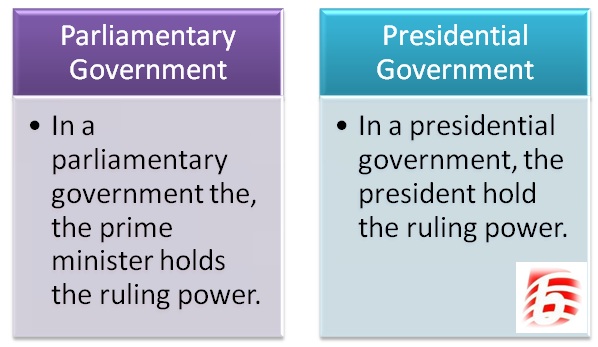Parliamentary vs Presidential Government
In the realm of politics, it’s important to understand the distinction between parliamentary and presidential government systems. Governments around the world fall into one of these two categories, either led by a president or a head of state, or governed by a parliament or house. The primary difference between the two lies in the distribution of power: in a parliamentary government, the prime minister holds ruling authority, while the president possesses superior power in a presidential government system. This article aims to clarify the meaning and differences between these two types of government systems.
What is a Parliamentary Government?
A parliamentary government, or system, can be defined as the executive branch of a government whose legitimacy stems from the legislature (parliament) itself. In this type of system, the head of government is the prime minister, while the head of state is a separate individual. The most well-known example of a country with a parliamentary system is Great Britain, where the prime minister serves as the head of government and the British monarchy represents the head of state. Britain is also recognized as the birthplace of this system. A key characteristic of a parliamentary system is that the legislature holds supreme power within the country, with the prime minister elected by parliamentary members through a voting system. As a result, the prime minister is primarily accountable to the parliament for government actions.
What is a Presidential Government?
In contrast to a parliamentary government, a presidential government is an organization led by a president. The president is elected through public voting and is therefore more accountable to the public than to the parliament. In a presidential government system, the president holds the most superior power, often surpassing the legislature. This means that even if parliament passes laws, the president can veto them and nominate public officials.
What is the difference between Parliamentary and Presidential Government?
• In a parliamentary government, the head of state and head of government are two separate individuals, whereas in a presidential government, one person occupies both powerful positions.
• A prime minister leads a parliamentary government, while a president leads a presidential government.
• The prime minister is an elected member of parliament, while a president is not always considered part of the parliament.
• In a parliamentary government, the head of state typically comes from a royal bloodline (e.g., king, queen, prince, or princess).
• The parliament is subordinate to the country’s legislature in a parliamentary government, while the situation may be different in a presidential government.
• A prime minister is answerable to the parliament for government actions, while a president is more responsible to the public who voted for him/her.
By examining these key differences, it becomes clear that parliamentary and presidential government systems differ in various ways, including structure, superior power, and functional features.
Key Takeaways
- A parliamentary government has separate individuals as head of state and head of government, while a presidential government has one person occupying both positions.
- In a parliamentary government, the prime minister is answerable to the parliament, while in a presidential government, the president is more accountable to the public.
- Parliamentary and presidential government systems differ in terms of structure, superior power, and functional features.
